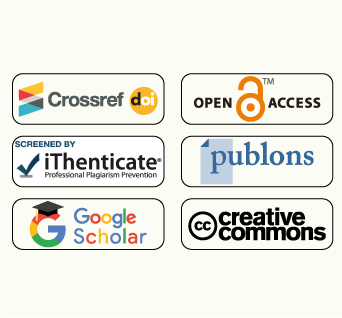Towards enhancing major emergency initial response training: a comparative study of STCW and OPITO standards
Abstract
The maritime industry has been characterized as a high-risk domain owing to various risks associated with its complicated operations. This aspect imposes significant importance on the human element role, especially during unanticipated events. When major emergencies occur on ships, the response of the ship’s Master and his supporting team becomes crucial in controlling the situation and preventing the escalation of threat. In recognition of this fact, the IMO Standards of Training, Certification and Watchkeeping (STCW) 95/2010 convention has developed a range of emergency response competencies. However, data on accidents and incidents in shipping reveal that the human element is still considered the primary factor contributing to most cases of ship loss. Furthermore, several cases have been reasoned for improper and ineffective management of the emergency. This might raise serious concerns regarding the adequacy of IMO model courses and whether they provide learners with the required level of knowledge, skills, situational awareness, and confidence to appropriately respond should a real major emergency occurs onboard. With the aim of enhancing the current level of maritime emergency management training, the authors of this study intended to identify possible gaps in current STCW training criteria by conducting a comparison with similar emergency response training standards established by the Offshore Petroleum Industry Training Organization (OPITO). The Qualitative analysis was used to compare three case studies of emergency-related STCW courses with two OPITO courses that have similar objectives, in terms of their aims, scopes, principles, outlines, number of delegates, outcomes, decision-making processes and assessment criteria, in order to assess whether the OPITO emergency response training provides more extensive scope for ensuring the optimum management of an extended range of emergency events rather than the currently delivered STCW courses. The study is concluded by identifying possible gaps and proposing specific modifications to the STCW standard which can be marked as a first step in the direction of establishing effective training for managing and controlling major emergencies onboard ships.
Received: 10 November 2022
Accepted: 04 December 2022
Published: 01 March 2023
Keywords
Full Text:
PDFReferences
Acejo I., Sampson H., Turgo N., Ellis N., & Tang L., (2018). The causes of maritime accidents in the period 2002–2016. Seafarers International Research Centre (SIRC), Cardiff University, United Kingdom. November 2018. ISBN: 1-900174-51-0 Available from https://safety4sea.com/wp-content/uploads/2018/12/SIRC-The-causes-of-maritime-accidents-in-the-period-2002-2016-2018_12.pdf
Allianz AGCS Global. (2012, October). Allianz Global Corporate & Specialty. Retrieved October 15, 2022, from http://www.agcs.allianz.com./
Celik, M., Cebi, S., (2008). Analytical HFACS for investigating human errors in shipping accidents. Accid Anal Prev 41(1):66–75
IMO. (2013). Model course 1.39 leadership & Teamwork. Scribd. Retrieved July 2022, from http://www.scribd.com/document/437237373/Model-Course-1-39-Leadership-Teamwork
IMO. (2017A). Resolution A.1110(30) adopted on 6 December 2017 strategic plan for the ... wwwcdn.imo.org. Retrieved November 8, 2022, from https://wwwcdn.imo.org/localresources/en/KnowledgeCentre/IndexofIMOResolutions/AssemblyDocuments/A.1110 (30).pdf
IMO. (2017B). STCW: Including 2010 Manila amendments: STCW convention and STCW Code: International Convention on Standards of Training, certification and Watch keeping for Seafarers (Part. A).
IMO. (2018). IMO Model Course 1.40. Use of Leadership and Managerial Skills. IMO. London. Retrieved at (June 2022) from; https://www.scribd.com/document/446161269/5-3-2-add1-pdf
IMO. (2019). International Convention on Standards of Training, certification and Watch keeping for Seafarers (STCW). International Maritime Organization. Retrieved June 8, 2022, from https://www.imo.org/en/About/Conventions/Pages/International-Convention-on-Standards-of-Training,-Certification-and-Watchkeeping-for-Seafarers-(STCW).aspx
IMO. (2020). IMO Model course 1.22. Bridge Resource Management. The Sub-Committee of Human Element, Training and Watchkeeping. IMO. London. Retrieved at (May 2022) from: https://www.gob.mx/cms/uploads/attachment/file/555564/HTW_7-3-3-Add.1_-_Proyecto_de_curso_modelo_revisado_1.22_sobre_gesti_n_de_los_recursos_del_puente__Secretar_a_.pdf
IMO. (2022). Human Element. London, IMO. Official Website. Retrieved at (July 2022) from: https://www.imo.org/en/OurWork/HumanElement/Pages/Default.aspx
ITWF. (2010). Maritime Professional Training (MPT). www.mptusa.com. Retrieved June 2022, from https://www.mptusa.com/pdf/STCW_guide_english.pdf
Neff Jürgen. (2020). Improving bridge resource management human factors in maritime safety. PMC Media House GmbH.
OPITO. (2019). Guidelines for the management of competence and training in ... - OPITO. Retrieved March 2022, from https://downloads.opito.com/downloads/6.ENGLISH_International_ER_Guidelines_Final-rev-0-Amendment-8_MASTER-June-2019.pdf
OPITO. (2022A). OIM controlling emergencies standard OIM controlling emergencies - OPITO. www.opito.com. Retrieved April 2022, from https://downloads.opito.com/downloads/OIM-Controlling-Emergencies-Rev-6-March-2022.pdf
OPITO. (2022). Major emergency management initial response training major ... - OPITO. Retrieved April 8, 2022, from https://downloads.opito.com/downloads/Major-Emergency-Management-Initial-Response-MEMIR-Revision-4-March-2022.pdf
Rødseth. (2012). (PDF) standard on emergency management - research gate. Research gate. Retrieved September 8, 2022, from https://www.researchgate.net/publication/280714136_Standard_on_emergency_management
Dominguez-Péry, C., Vuddaraju, L. N. R., Corbett-Etchevers, I., & Tassabehji, R. (2021, November 24). Reducing maritime accidents in ships by tackling human error: A bibliometric review and research agenda - journal of shipping and trade. SpringerOpen. Retrieved October 2022, from https://doi.org/10.1186/s41072-021-00098-y
DOI: http://dx.doi.org/10.21622/MRT.2023.02.1.001
Refbacks
- There are currently no refbacks.
Copyright (c) 2023 Sherif Aly, Hossam Eldin Gadalla, Ahmed Esmail

This work is licensed under a Creative Commons Attribution-NonCommercial 4.0 International License.
Maritime Research and Technology
E-ISSN: 2812-5622
P-ISSN: 2812-5614
Published by:
Academy Publishing Center (APC)
Arab Academy for Science, Technology and Maritime Transport (AASTMT)
Alexandria, Egypt
mrt@aast.edu

